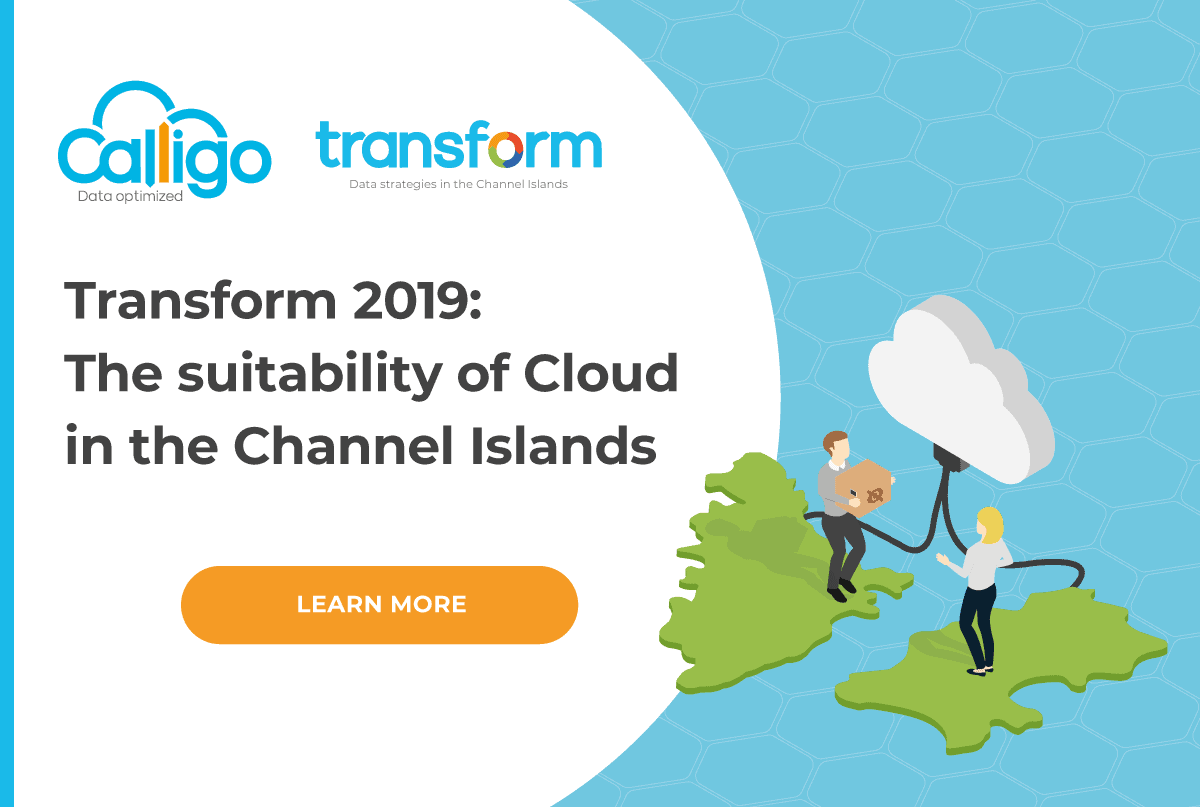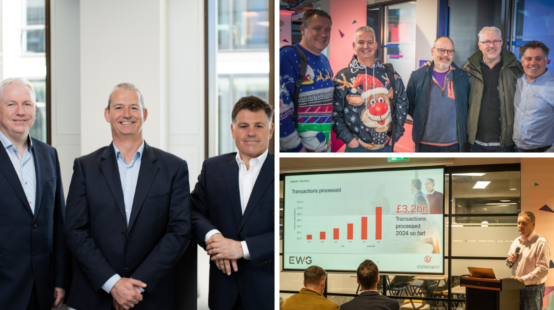
Every year, we bring together the Channel Islands IT community to discuss the #1 topic on everyone’s lips. In 2017, we were discussing GDPR before it came into effect in May 2018.
This time last year, we focused the event on AI, as a few months prior, we launched our new Data Insights services, as part of our evolution from cloud service providers to Data Optimization and Privacy specialists.
This year, Transform was focused on the suitability of cloud in the Channel Islands. At first sight this sounds like a return to Calligo’s cloud focus of years ago. Actually, no.
We chose this topic because in our recent discussions with Channel Islands businesses over the last few months about how they were processing their data, looking to monetize it, maintaining compliance, the topic of what was allowed with the cloud – and what was not – kept cropping up. Even more so that it ever did in pure cloud discussions.
It seems that as data becomes better recognised by businesses as their most valuable asset, and in many cases actually as IP, CIOs are actually even more concerned than they ever have been about where their data resides, who can access it, where it is accessed from, where it could end up and be replicated to – and the liabilities its inherently fluid nature can create.
In other words, their concerns are bigger than whether to use the cloud, or which platform(s) to use. They are actually more concerned with whether their data strategy is fit for purpose or not.
But in the Channel Islands, this is an even more complicated topic.
Businesses in the region operate under an unusually large number of obligations and pressures, all of which have material impact on Channel Islands businesses’ data strategies and how they operate.
-GDPR
-Corporate tax residency and economic substance requirements, especially the impacts of HMRC vs Barclays Bank and HMRC v Laerstate
-Financial services regulations
-Data residency and privacy, foreign governments’ data access capabilities, and how cases such as Microsoft vs Ireland affect provider selection
There are literally dozens of rumours of what Channel Islands businesses can and cannot do because of these various obligations – including whether cloud can be used, or whether certain approaches undermine tax residency. And many are incorrect and are preventing businesses from taking advantage of the cloud and all the capabilities it has to offer.
We therefore took it upon ourselves to create the industry’s first-ever comprehensive guide to building your data strategy and using cloud technologies in the Channel Islands, and launched it at Transform 2019.
The key conclusion is simple – despite the rumours, there are no obstacles to using the cloud in the Channel Islands.
There are however reasons to pay close attention to the nuances of your data strategy.
These nuances include all the above – regulators, tax residency, data privacy, data sensitivity – and more besides.
For example, regulators may not prescribe where your data is held, but they will demand that your data is available, accurate and archived.
Similarly, our unique research proves that data residency has no bearing on tax residency, but where your data is accessed from, who by and for what purpose absolutely does.
Our event also included an expert panel, chaired by Tony Moretta of Digital Jersey, who discussed where the rumours and inaccuracies about cloud’s suitability had come from, how they will evolve in the future, and some of the technical points of how best to manage data for certain objectives. Our panellists included:
-Julian Box, Founder & CEO of Calligo
-Stephen Ozanne, Senior Counsel at Walkers and Head of the Channel Islands Regulatory & Risk Advisory Group
-Iain Beckingham, Director, Cloud Service Providers, Intel
-Per Ljungstrom, EMEA Lead Architect for Cloud Technologies, Lenovo
Many of the questions from the audience were seeking clarification on how to balance the tax laws of multiple jurisdictions, whether encrypting your data negates these issues (it doesn’t!), or how the local legislation compares to other jurisdictions’.
Indeed, the number of questions received from the audience, and the openness of the conversations that ensued, were testament to how important and keenly-felt these issues are.
To find out more about our unique research, please download the full report here




